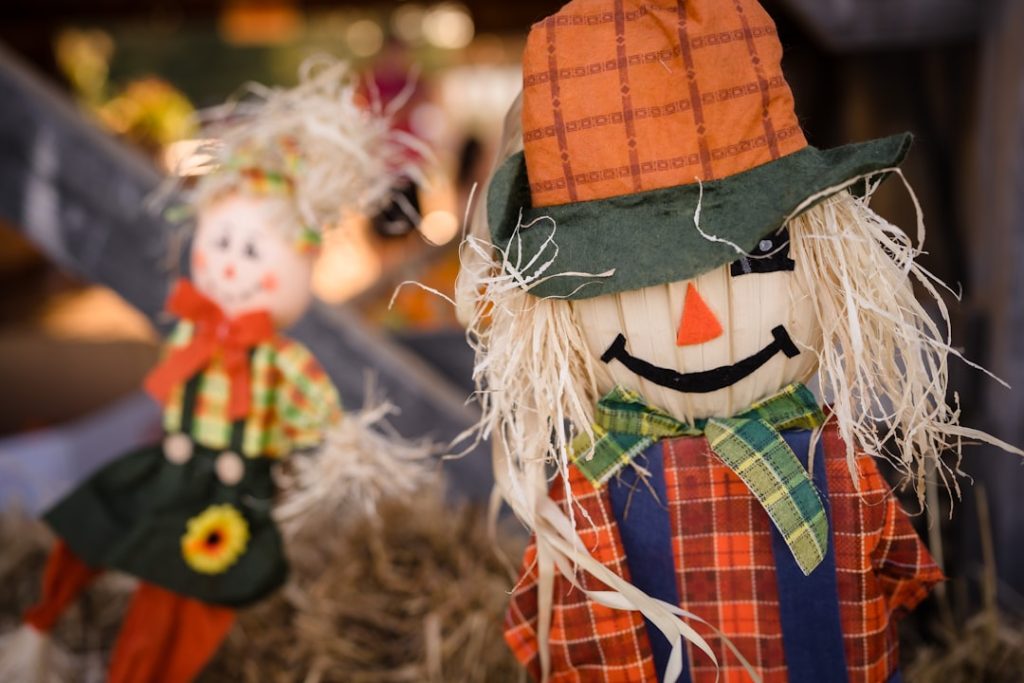Chicken hawks, or raptors, are birds of prey that present a significant risk to backyard chickens. This group includes species such as red-tailed hawks, Cooper’s hawks, and sharp-shinned hawks. These predators possess exceptional hunting abilities, characterized by acute vision and powerful talons, making them particularly dangerous to free-range chickens.
Chicken hawks are opportunistic hunters that target small animals, including chickens, whenever possible. These raptors employ stealthy hunting techniques, often attacking from above to catch their prey unawares. They are capable of carrying off smaller chickens, which is a major concern for poultry keepers.
Chicken hawks are protected under the Migratory Bird Treaty Act, prohibiting their harm or killing without proper authorization. This legal protection complicates efforts to manage the threat they pose to domestic chickens. To effectively protect their flocks, chicken owners must understand the behavior and hunting patterns of these predators.
By recognizing the specific dangers posed by chicken hawks and familiarizing themselves with their habits, poultry keepers can implement proactive measures to safeguard their chickens and reduce the risk of predation.
Table of Contents
- 1 Implementing physical barriers to protect your chickens
- 2 Utilizing scare tactics to deter chicken hawks
- 3 Providing hiding spots for your chickens
- 4 Using decoys to confuse and deter chicken hawks
- 5 Installing predator-proof housing for your chickens
- 6 Seeking professional help for persistent chicken hawk problems
- 7 FAQs
- 7.1 What is a chicken hawk?
- 7.2 Why do chicken hawks target chickens?
- 7.3 What are some signs that a chicken hawk is targeting my chickens?
- 7.4 How can I keep chicken hawks away from my chickens?
- 7.5 Are there any legal methods to deter chicken hawks?
- 7.6 What should I do if a chicken hawk continues to target my chickens?
Key Takeaways
- Chicken hawks pose a serious threat to your chickens and can be difficult to deter
- Physical barriers such as fences and netting can help protect your chickens from chicken hawks
- Scare tactics like noise makers and reflective objects can help deter chicken hawks from your property
- Providing hiding spots and shelters for your chickens can help them evade chicken hawks
- Decoys such as fake predators or owls can confuse and deter chicken hawks from targeting your chickens
- Predator-proof housing, such as secure coops and enclosures, is essential for protecting your chickens from chicken hawks
- If you are unable to effectively deter chicken hawks on your own, seek professional help from wildlife experts or pest control services
Implementing physical barriers to protect your chickens
Implementing Physical Barriers
One effective way to safeguard your chickens from chicken hawks is by installing physical barriers around their coop and run. This can include using hardware cloth or welded wire fencing with small openings to prevent chicken hawks from accessing your flock. It’s crucial to ensure that the fencing is tall enough to prevent chicken hawks from flying over it and that it is securely anchored to the ground to prevent predators from digging underneath it.
Additional Deterrents
Covering the top of the run with netting or wire mesh can help deter aerial attacks from chicken hawks. Another physical barrier that can be effective in deterring chicken hawks is the use of predator-proof shelters for your chickens. Providing a secure coop that is equipped with sturdy doors and latches can help keep your chickens safe from predators, including chicken hawks.
Maintenance and Repairs
Regularly inspecting the coop for any signs of wear or damage and making any necessary repairs is vital to ensure that it remains predator-proof. By implementing physical barriers such as fencing and secure shelters, chicken owners can create a safe and protected environment for their flock, reducing the risk of predation by chicken hawks.
Utilizing scare tactics to deter chicken hawks

Scare tactics can be an effective way to deter chicken hawks from targeting your flock. One common scare tactic is the use of visual deterrents such as reflective tape, shiny objects, or predator eye balloons. These items can be hung around the coop and run to create movement and reflections that may startle and deter chicken hawks.
Additionally, scarecrows or decoys of larger birds of prey can be placed in the vicinity of the coop to create the illusion of a potential threat to chicken hawks. Another effective scare tactic is the use of sound deterrents such as wind chimes, bells, or even a radio playing at a low volume near the coop. These noises can disrupt the quiet environment that chicken hawks prefer for hunting and may discourage them from approaching the area.
It’s important to regularly change the location of these scare tactics to prevent chicken hawks from becoming accustomed to them. By utilizing scare tactics, chicken owners can create an environment that is less appealing to chicken hawks, reducing the likelihood of predation on their flock.
Providing hiding spots for your chickens
Creating hiding spots for your chickens can help them evade detection and capture by chicken hawks. This can include providing dense vegetation or shrubbery within the run where chickens can seek cover if they sense a predator nearby. Planting bushes or installing brush piles can create natural hiding spots for chickens to escape from aerial predators like chicken hawks.
Additionally, providing structures such as wooden pallets or overturned crates can offer additional hiding places for chickens to take refuge. Another way to provide hiding spots for your chickens is by incorporating natural features such as large rocks or boulders within the run. These features can provide shelter for chickens and make it more difficult for chicken hawks to spot and capture them.
By creating hiding spots within the run, chicken owners can give their flock a better chance of evading predation by chicken hawks and other aerial predators.
Using decoys to confuse and deter chicken hawks
The use of decoys can be an effective strategy for confusing and deterring chicken hawks from targeting your flock. Decoys of larger birds of prey, such as owls or eagles, can be strategically placed around the coop and run to create the illusion of a potential threat to chicken hawks. The presence of these decoys may discourage chicken hawks from approaching the area, as they may perceive it as a territory already occupied by another predator.
Another type of decoy that can be used to deter chicken hawks is a fake predator animal, such as a coyote or fox decoy. These decoys can be placed strategically around the perimeter of the coop and run to create the impression of a potential threat to chicken hawks. By using decoys, chicken owners can create a visual deterrent that may discourage chicken hawks from targeting their flock, reducing the risk of predation.
Installing predator-proof housing for your chickens

Secure Coop Construction
Installing predator-proof housing for your chickens is crucial for safeguarding them from threats like chicken hawks. This involves building the coop with sturdy materials and secure hardware to prevent predators from gaining access. Heavy-duty latches and locks on doors and windows are essential to prevent entry by predators, including chicken hawks.
Reinforcing the Coop
Reinforcing the coop with hardware cloth or welded wire fencing can help prevent predators from breaking in. This added layer of protection can give you peace of mind and ensure your chickens’ safety.
Secure Outdoor Run
Providing a secure outdoor run for your chickens is another vital aspect of predator-proof housing. Covering the top of the run with netting or wire mesh can prevent aerial attacks from chicken hawks. Regularly inspecting the run for signs of wear or damage and making necessary repairs are also essential to maintaining a predator-proof environment.
Seeking professional help for persistent chicken hawk problems
In some cases, persistent problems with chicken hawks may require seeking professional help to effectively manage the threat to your flock. Wildlife experts or pest control professionals may be able to provide guidance and assistance in implementing strategies to deter chicken hawks from targeting your chickens. They may also be able to offer advice on obtaining permits for legal methods of deterring or removing persistent predators.
Another option for seeking professional help is consulting with experienced poultry farmers or local agricultural extension services for advice on dealing with persistent chicken hawk problems. These professionals may have valuable insights and recommendations based on their own experiences in managing predator threats to poultry flocks. By seeking professional help, chicken owners can gain access to expertise and resources that can help them effectively address persistent issues with chicken hawks and protect their flock.
In conclusion, understanding the threat of chicken hawks and implementing effective strategies to protect your chickens is essential for minimizing the risk of predation. By utilizing physical barriers, scare tactics, hiding spots, decoys, and predator-proof housing, chicken owners can create a safe and secure environment for their flock. In cases of persistent problems with chicken hawks, seeking professional help may be necessary to effectively manage the threat and safeguard your chickens from predation.
With proactive measures and careful planning, it is possible to mitigate the risk of predation by chicken hawks and ensure the safety and well-being of your flock.
If you’re looking for ways to protect your chickens from predators like chicken hawks, you may also be interested in learning about the importance of the size of your chicken coop door. A properly sized door can help keep predators out and your chickens safe. Check out this article on chicken coop door size for more information on how to keep your chickens secure.
FAQs
What is a chicken hawk?
A chicken hawk is a term used to describe various species of hawks and other birds of prey that prey on chickens and other poultry.
Why do chicken hawks target chickens?
Chicken hawks target chickens because they are easy prey and provide a good source of food for the birds of prey.
What are some signs that a chicken hawk is targeting my chickens?
Signs that a chicken hawk is targeting your chickens include missing or injured chickens, feathers scattered around the coop or yard, and sightings of a hawk or other bird of prey near the chicken coop.
How can I keep chicken hawks away from my chickens?
There are several methods to keep chicken hawks away from your chickens, including using scare tactics such as reflective objects, noise makers, and visual deterrents. Additionally, providing cover for your chickens to hide under can help protect them from chicken hawks.
Are there any legal methods to deter chicken hawks?
Yes, there are legal methods to deter chicken hawks, such as using scare tactics and visual deterrents. It is important to check local laws and regulations regarding the protection of birds of prey before implementing any deterrent methods.
What should I do if a chicken hawk continues to target my chickens?
If a chicken hawk continues to target your chickens despite your efforts to deter it, you may need to seek assistance from local wildlife authorities or bird control professionals. It is important to handle the situation in a legal and humane manner.
Meet Walter, the feathered-friend fanatic of Florida! Nestled in the sunshine state, Walter struts through life with his feathered companions, clucking his way to happiness. With a coop that’s fancier than a five-star hotel, he’s the Don Juan of the chicken world. When he’s not teaching his hens to do the cha-cha, you’ll find him in a heated debate with his prized rooster, Sir Clucks-a-Lot. Walter’s poultry passion is no yolk; he’s the sunny-side-up guy you never knew you needed in your flock of friends!







